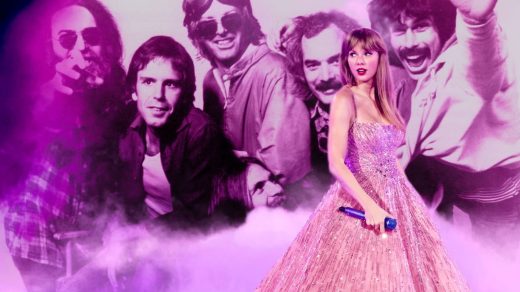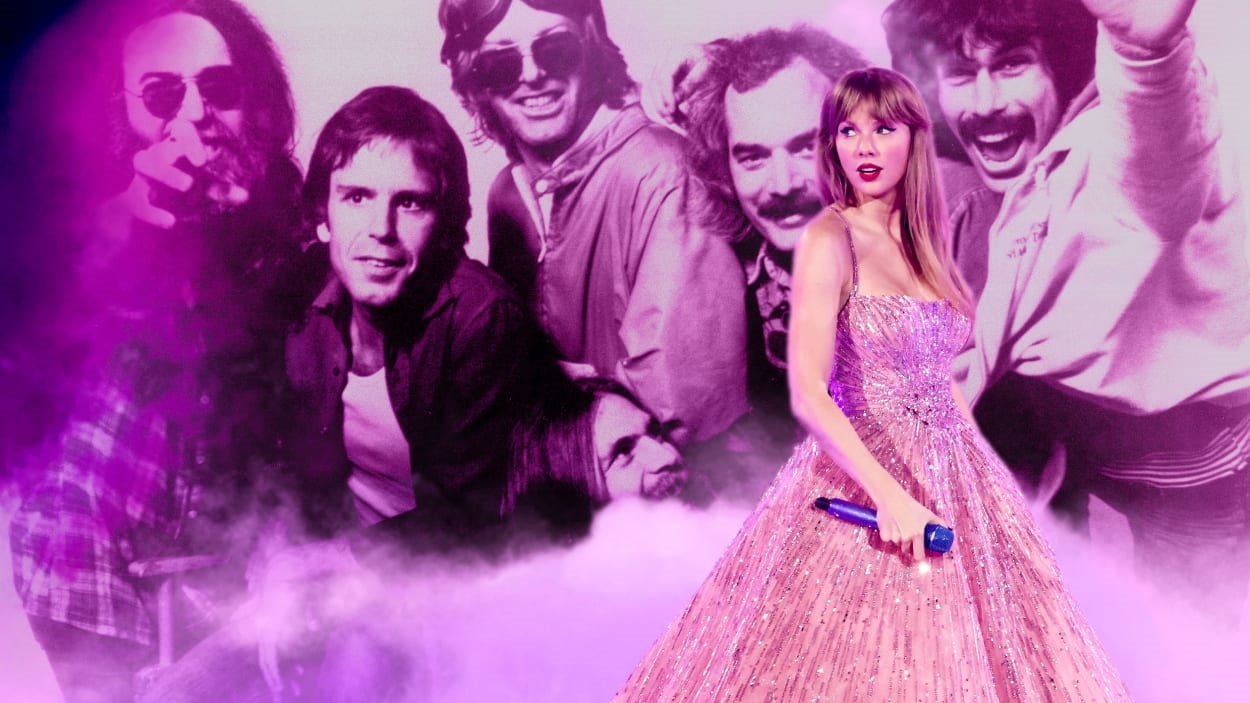Why Taylor Swift is the new Grateful Dead—and what it means for the future of live entertainment
By Spencer Ante
My daughter desperately wanted one present for her Sweet 16: to see the Taylor Swift concert with a good friend. Unfortunately, tickets to the recent Eras Tour were sold out on Ticketmaster, and resale prices were in the thousands for even nosebleeds. In a last ditch, but calculated, effort, my wife took her and her friend to the stadium in Philadelphia, hoping to snag tickets right before the show when the scalpers cave, and prices typically dive on the secondary market.
But due to the extraordinary demand, prices only dipped slightly for 10 minutes around the start of the opening band, and then proceeded to rise again. My wife frantically tried to buy some tickets and even placed an order, only to find that the seller rejected the offer. Then not long after, the apps said, sorry there are no tickets left to sell. Tears flowed.
After seeing the scene, with thousands of fans setting up camp outside the arena to take in the show, it struck me that there are a number of striking similarities between Swift’s brand and that of one of my favorite bands, The Grateful Dead, including their struggles with ticket scalpers, which could lead to big changes in the future of the live-entertainment business and how it is structured.
On the surface, the two bands couldn’t be more different. Swift is a gifted artist who performs very personal songs for legions of young female fans in a series of highly choreographed set pieces with dazzling outfits; while the Dead, for most of their career, were a bunch of grizzled old, bearded guys who were perfectly content playing songs about cowboys, hustlers, and murdering men, dressed in T-shirts and jeans and barely moving on stage.
But dig a little deeper, and you’ll find some surprising similarities. Artistically, in their early years, both the Dead and Swift drew on similar musical roots in country and bluegrass but then evolved and wove other strains into their musical tapestries, including folk, blues, pop, and psychedelia. Both artists are not only musical innovators, but also singer-songwriters who despite covering vastly different territory are lyrical geniuses who have developed a canon of classic songs. While Swift writes or co-writes all her songs, the Dead wrote by small committee with most of their ditties penned by Jerry Garcia and lyricist extraordinaire Robert Hunter.
Both grew over time into incredibly successful commercial acts with cult followings. Believe it or not, after the Dead released their hit album In the Dark in 1987 and grew their fanbase, they were actually the highest-grossing musical act for two years in the early 1990s. Swift continues to top the album charts, and her latest Eras Tour with its 44-songs setlist, is expected to smash current records and be the highest-grossing tour of all time.
That commercial success stems from a brilliant ability to build community around the music. Many successful brands have used this strategy, such as Disney, which hosts the three-day super-fan festival D23 Expo; or the Harley Owners Group (HOG), operated by Harley-Davidson, which hosts meetups for bikers around the globe.
The Dead and Swift have amassed the most fervent groups of fans who have matured into flourishing communities with unique cultural rituals. Deadheads and Swifties go “on tour” and follow their bands around the country, where they bump into friends and other fans. Deadheads exchange custom T-shirts, and Swifties give handmade, beaded friendship bracelets to their seatmates. Deadheads see multiple shows because the band plays different songs each night, and Swifties always look forward to the surprise song she’ll play at every concert.
Both artists are so popular that thousands of fans come not to see the show, but to hang out in the parking lot and enjoy the music and one another. Similar to the accessory market for the iPhone, Swift and The Dead have even spurred their own secondary economies. When they come to town, small but vibrant economies pop up, driving up hotel and transportation prices while entertaining the locals.
The intense loyalty stems in large part from the two-way communication between artist and fan, and a bucking of convention designed to protect the community and culture. Due to rampant scalping, The Dead pioneered their own ticket sales operation and were the first band to allow live taping of their shows—presaging the future of digital music and the sharing economy by decades. The Dead realized long ago that bootleg tapes and albums were marketing for the real money maker—touring, merchandise, and licensing of their brand.
In 2015, Swift famously flexed and forced Apple to do an about-face and pay artists during a free trial of Apple’s new music-streaming service. Swift is rerecording her earlier music because she couldn’t acquire the rights to her masters.
The question for Swift now is: What more will she do with her immense power? After TicketMaster flubbed the presale for her current tour, Swift wrote on social media that she’s “trying to figure out how this situation can be improved moving forward,” and hinting she might bring this element of her career “in-house” like many others to protect her loyal fans.
What’s happened since then can only make her more livid. The levels of scalping on the Eras Tour has reached absurd proportions with the average secondary ticket price in the thousands and some seats listing for close to $100,000—with the commensurate fees that are often close to half the ticket price, and sometimes more.
This greed highlights a grave problem with the live-concert industry attracting the attention of lawmakers who are concerned that the Live Nation-TicketMaster conglomerate has too much power. Today, Live Nation Entertainment, by some estimates, controls 70% of the primary ticketing and live-event venues marketplace. The company has been regularly accused of threatening venues that don’t use Ticketmaster with the loss of acts promoted by Live Nation.
Fan rage has sparked calls to break up the company, with politicians from both parties asking the Biden Administration to reevaluate the 2010 merger. Earlier this year at a congressional hearing, the head of rival ticketing platform SeatGeek called for the breakup of Ticketmaster and Live Nation, alleging it’s a monopoly that uses threats to dominate the industry and hurt consumers.
While my wife and daughter were too devastated to hang around the Philly show after they couldn’t get tickets, we were eventually able to snag some for the Foxborough, Massachsetts, show the following week. We spent a small fortune, and made the drive, to make her Sweet 16 dreams come true. Despite a massive storm that threatened to cancel the show, Swift performed for more than four hours in the pouring rain. It was a night they’ll never forget. Maybe next time, they’ll feel comfortable just hanging out in the parking lot and listening to the show.
Spencer Ante is the former head of insights at Meta, and author of Creative Capital: Georges Doriot and the Birth of Venture Capital.
(34)



